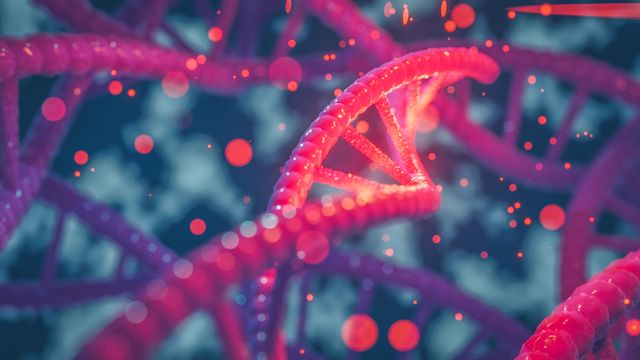Register for free to listen to this article
Thank you. Listen to this article using the player above. ✖
Want to listen to this article for FREE?
Complete the form below to unlock access to ALL audio articles.
Researchers have discovered eight new genes associated with schizophrenia, in the largest exome-sequencing study of the disorder ever conducted.
The breakthrough, made by scientists at the Centre for Neuropsychiatric Genetics and Genomics (CNGG) at Cardiff University, provides new information and improves the understanding and future treatment development for schizophrenia.
The international study, published in Nature Communications, analysed genetic data from 28,898 individuals with schizophrenia, 103,041 without the condition, and 3,444 families affected by the disorder. Researchers focused on detecting rare, high-impact mutations in protein-coding genes that are significantly more common in people with schizophrenia.
The study identified two genes – STAG1 and ZNF136 – that were linked to schizophrenia with strong genetic evidence. An additional six genes – SLC6A1, KLC1, PCLO, ZMYND11, BSCL2, and CGREF – were also associated with more moderate evidence.
The research found that SLC6A1 and KLC1 are the first schizophrenia risk genes to be linked solely through missense variants, a specific type of mutation that alters the amino-acid sequence of proteins.
Sophie Chick, PhD student at Cardiff University, funded by Mental Health Research UK and the Fieldrose Charitable Trust, said: “These findings are informative because they suggest that schizophrenia might be linked to changes in how DNA is organised within cells, and also disruptions in how brain cells communicate using a chemical called GABA.”
The research also strengthens the case for shared genetic roots between schizophrenia and other neurodevelopmental conditions. Four of the newly identified genes – STAG1, SLC6A1, ZMYND11, and CGREF1 – have previously been associated with autism, epilepsy, and developmental delay.
Dr Elliott Rees, from Cardiff University School of Medicine and the study’s lead author, said: “Rare genetic variants have long been known to have a role in schizophrenia, but identifying specific genes linked to these mutations has been a major challenge.”
With only a limited number of risk genes identified before this study, researchers say the findings are a significant leap forward in understanding the complex genetics of schizophrenia. While translating these genetic discoveries into treatments remains a long-term goal, the results offer new hope for guiding drug development and targeted therapies in the future.
Reference: Chick SL, Holmans P, Cameron D, et al. Whole-exome sequencing analysis identifies risk genes for schizophrenia. Nat Commun. 2025;16(1):7102. doi: 10.1038/s41467-025-62429-y
This article has been republished from the following materials. Note: material may have been edited for length and content. For further information, please contact the cited source. Our press release publishing policy can be accessed here.

